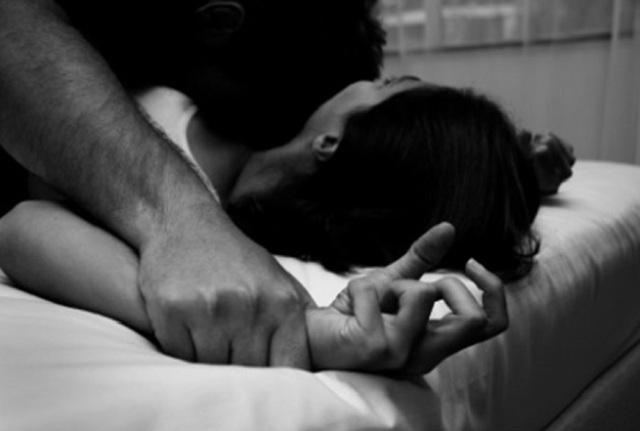
The Sunday News

Natalie Dube
THE church means a lot of things to different people. For some it is regarded as safe place. For some it is both a safe place and a place where they can find healing, but churches can be regarded as toxic for rape victims.
There are various ways that churches have failed to create safe places for victims who have been sexually violated. If anything, some churches perpetuate rape culture in various subtle and explicit forms. Rape culture is the normalisation of rape while also shifting the blame and burden on rape victims.
The church absolves perpetrators of their crimes in a number of ways. Christianity advocates for women dressing “modestly” because women’s bodies are sexually objectified. A lot of sermons plead with women to cover their bodies, and some preachers go to the extent of adding, “so that you do not tempt men and you might get raped, so cover up”. One would assume that it is often said with “good intentions” but this is not true. How many rape cases have you heard whereby the perpetrator uses women not being “modestly” dressed up as a defence?
The intention might be to protect women but these are careless statements that absolve perpetrators from their crimes.
Churches treat their male church members as “real men” or ask men to aspire to be “real men”, but when it comes to women’s bodies they are suddenly deemed incapable of controlling their sexual urges, and women are now responsible for their transgressions by the way they decide to dress up. These are subtle ways of shifting the responsibility on rape victims, and the message being reinforced over and over again is women who do not dress “modestly are responsible for their violation”.
Pastor Milson Ndlovu argued that dressing immodestly is a violation towards men, as men are likely to be aroused by women’ s bodies.
“There is a need for women to dress modestly to avoid these perversions,” he said.
The constant need to police women’s bodies perpetuates rape culture as men are framed as powerless beings who cannot control their sexual urges. Not only are these sermons a violent act against rape victims but they also create an illusionary sense of “safety” should women dress modestly which is not the case. Sitting through such violent sermons makes one constantly wonder if they were indeed responsible and shifts the burden of blame and shame on the victims.
The church places value on women’s virginity. Women are taught to keep their bodies “pure” till they are married. These sermons tend to devalue women as their worth is dependent on keeping their hymen intact as their “womanhood” is dependent on it, and women who are not virgins are shamed for not having this “great gift”.
Again, this is done with the “good intentions of maintaining a social order”, and purging society of its sexual immorality, but at the expense of rape victims. The reinforcement of women’s worth based on their virginity also places the burden of shame on rape victims as they cannot give this “great gift” to their husbands should they get married.
So what does this mean for rape survivors? Should they carry the burden and shame of not being virgins or are they the exception, yet they are also blamed in subtle ways for the violations on their bodies?
Pastor Ndlovu mentioned that real men do not rape as their role is to protect women, not to violate them.
The “real men” rhetoric is violent as it subscribes to an aggressive type of masculinity. It is the very same rhetoric that has silenced many male rape survivors as they do not fit into these hyper masculine standards that require them to be aggressive.
This rhetoric shames men for “being weak” and shames them from not being able to ward off these violations on their bodies.
Also the use of the “real men” rhetoric, is offensive to rape survivors who have been raped by men, as the men who raped them are not “real men”, but they are real. It reduces men to animals and in the process it desensitises the violations they have committed as they are regarded as non-human.
The church places a heavy burden on women as they have to take certain precautionary measures against getting violated, but it does not ask men to not rape nor does so as an afterthought. The church is highly prejudiced against rape victims as perpetrators are absolved from their crimes, or is it because most churches are led by men and women who are patriarchal gatekeepers?
The church as a safe place for rape survivors is a myth as the Bible condones rape in Deuteronomy 22 v 25-29. That verse declares that should a woman who is pledged to marriage be violated, that men should be stoned to death, while it further advocates for perpetrators to marry their victims and should not divorce them under any circumstances.
Thus the Bible is deeply embedded in misogyny where women only exist as an extension of men not as individuals or they do not have a voice as most rapes that occurred in the Bible such as Dinah’s are never told by them but on their behalf. In Zechariah 14 v 1-2, rape is meted out and condoned as punishment.
The church and the Bible is used as a point of reference when preaching about love, kindness and providing a safe place, yet one cannot ignore the toxicity of that environment that perpetuates rape culture in various forms.



